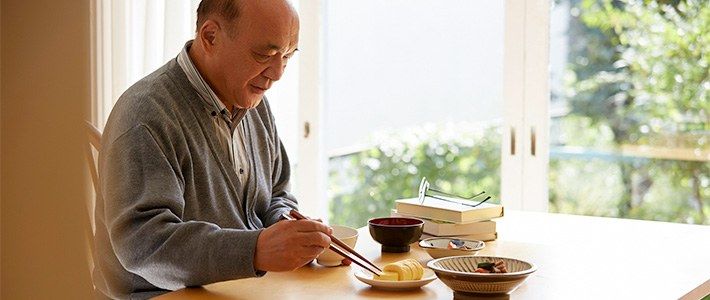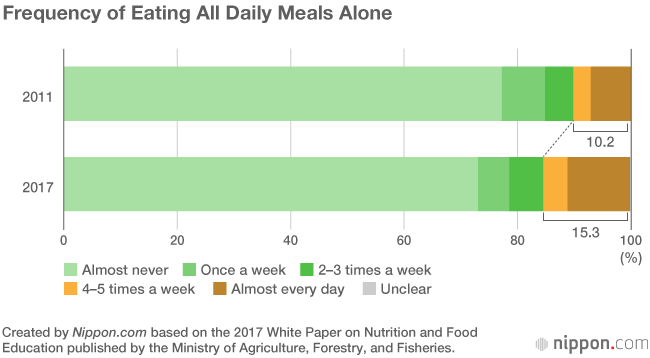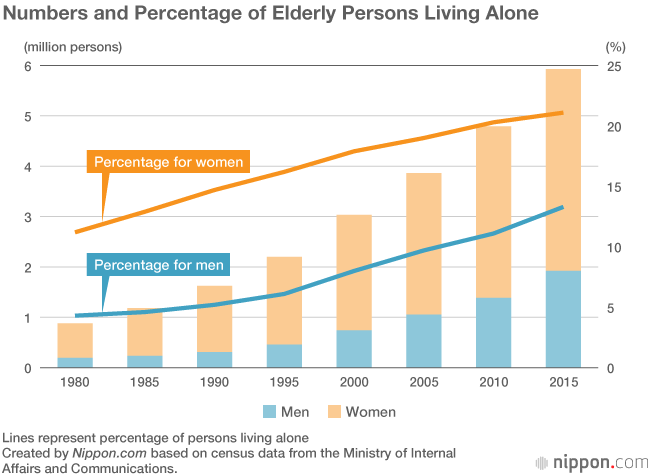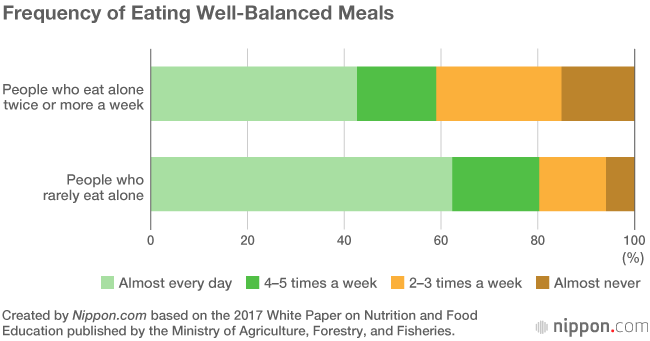
White Paper Reveals Many Japanese Eat Alone
Society- English
- 日本語
- 简体字
- 繁體字
- Français
- Español
- العربية
- Русский
A 2017 white paper published by the Ministry of Agriculture, Forestry, and Fisheries revealed that 15.3% of 1,786 survey respondents ate all of their daily meals alone more than half of the week, which is five percentage points higher than the survey result for 2011.
The survey respondents mentioned various reasons why they eat alone. The most common reason cited was that it was “unavoidable due to reasons of time and location” (35.5%), followed by those who “had no one else to eat with” (31.1%) and who “didn’t mind eating alone because it was more convenient” (27.3%).

Underlying the large number of people eating alone is the increase in single-person and one-parent households, as well as households composed solely of a married couple. In particular, the percentage of the elderly aged 65 and older living alone has been increasing. As of 2015, 13.3% of all elderly men and 21.1% of all elderly women were living alone. With the graying of the Japanese population, it seems likely that more and more people will be eating their meals alone in the future.


Those who tend to have meals with others are also more likely to consume nutritionally well-balanced meals. Those who report that they “almost never” eat alone are much more apt to have a meal that has a staple dish (e.g. rice) along with a main dish and side dishes. It is also clear that eating with others is linked to efforts to improve dietary habits and avoid lifestyle-related diseases through such practices as consuming more vegetables or limiting the consumption of salt.
(Translated from Japanese. Banner photo: © Pixta.)